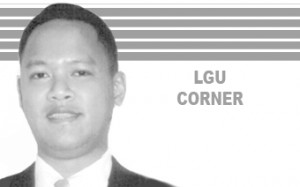 The story of the week is the public disclosure by no less than the President of five police generals, active and retired, as protectors of drug lords in the country.
The story of the week is the public disclosure by no less than the President of five police generals, active and retired, as protectors of drug lords in the country.
Naturally, the police generals, aside from denying involvement in illegal drugs have cried against the trial by publicity generated by the President’s announcement.
They also claim they are entitled to due process and did not deserve to be condemned before a hearing.
The questions are:Â Is there a denial of due process against the police generals? Have they been subjected to trial by publicity?
The Supreme Court has tackled the concept of trial by publicity in the famous Webb versus De Leon case.
Hubert Webb, who has been acquitted by the Supreme Court, once cried against trial by publicity, or what he terms as “prejudicial publicity†of his case that deprived him of a fair trial.
Here is what the Supreme Court said about prejudicial publicity:
“In floating this issue, petitioners touch on some of the most problematic areas in constitutional law where the conflicting demands of freedom of speech and of the press, the public’s right to information, and an accused’s right to a fair and impartial trial collide and compete for prioritization. The process of pinpointing where the balance should be struck has divided men of learning as the balance keeps moving either on the side of liberty or on the side of order as the tumult of the time and the welfare of the people dictate. The dance of balance is a difficult act to follow.â€
The president is a lawyer.
What he did—announcing top drug coddlers— sparked an interplay of constitutional concepts.
The President stands on solid constitutional grounds.
Against complaints of trial by publicity, the President was directly reporting to his constituents because under the constitution and in our democracy, the people have the inherent right to be informed on maters of public concern.
It is in the constitution.
The Bill of Rights states that: “The right of the people to information on matters of public concern shall be recognized.â€
Thus, the President was doing his sworn constitutional duty of informing the public.
Secondly, there is no trial to speak of because the exposed police generals are not facing any criminal charges.
If and when they do, they have to contend with what the Supreme Court had declared in Webb versus De Leon on prejudicial publicity.
The president not only has balls. He knows his law.
Thus, this latest Presidential act, is one worthy of study as an unusual use of Executive Power.
We have not seen this before.
I don’t think the President was experimenting with Presidential prerogatives.
He was plainly doing what he believes is the right thing to do under the circumstances.
The people approve of the President’s act not because they went to deprive the generals of their rights.
The people approve it because they have longed desired for someone bold enough to open this can of worms in public because for such a long time, it has been the elephant in the room.
It was confirmatory of what the people have strongly suspected all along.
The drug menace will never thrive without protection from powerful people in government.
Finally, the people see the anti drug campaign is slowly gaining the upperhand. (By Atty. Jay I. Dejaresco)
